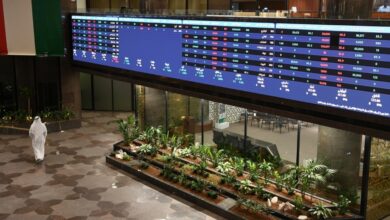
A recent economic report highlights the continued importance of project financing in the Gulf region, crucial for the development of multi-billion-dollar infrastructure projects, including energy, water, data centers, and more.
A report by Arabian Gulf Business Insight quoted Abbas Hussain, Global Head of Infrastructure at Standard Chartered Bank, stating that the outlook for project financing in the Gulf region remains strong in the coming years, with a particular focus on Saudi Arabia and the UAE.
Hussain added that this is mainly driven by major infrastructure projects in the region, investments in renewable energy and green hydrogen, and the rising importance of waste and water management projects, particularly given the region’s water scarcity. Additionally, countries in the region are working to strengthen capital structures in a financing environment characterized by high interest rates.
Interest Effect
Hussain pointed out that the relatively high interest rates over the past three years have increased project costs, making project structuring and risk allocation even more crucial.
However, Gulf countries with stronger credit ratings have benefited from heightened competition among investors, contractors, and lenders eager to participate in these projects.
Hussain continued that the international investors, including private credit funds, government investors, and development finance institutions, are increasingly involved in project financing in the Gulf region. Technological advances and lower equipment costs have also played a role in keeping infrastructure costs within reasonable limits, helping to maintain control over lending.
Stephen Knight, partner at Dentons Law Firm in Abu Dhabi, stated, that project finance in the region has often been misunderstood. The term typically refers to long-term loans used to finance projects, which are repaid through the project’s revenues once it is completed.
Knight added that reducing project costs is a key factor for decision-makers when planning the financing of government infrastructure projects in the Gulf. Lowering project costs often results in the exclusion of project financing, as the analysis of project values versus revenues shows that government-guaranteed debt is typically cheaper than project finance debt with limited rights.
Energy Projects
Knight expects an increase in project finance deals for the construction of wind farms, energy storage facilities, and data centers, which are becoming more common in the Gulf. With reduced need for extensive risk analysis, this is leading to lower consulting fees and faster processing of project transactions.
According to Arabian Gulf Business Insight, the Gulf region primarily relies on three types of project finance deals: competitively tendered projects for financing public infrastructure like power and water plants, government-backed project finance, and private project finance.
The report noted that private projects in the region, such as the construction of petrochemical plants, are more common, while government projects tend to be rarer, take longer to approve, and are typically more expensive.
Furthermore, the report concluded, stating that the tendered projects are generally faster, easier, and less expensive. The winning company secures the required funds or incorporates financial revenues or repayment obligations, which are then reflected in the project accounts.
Source: Al Qabas













